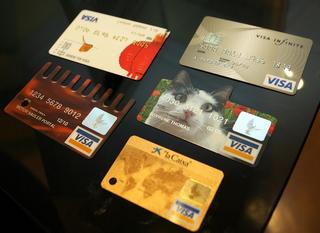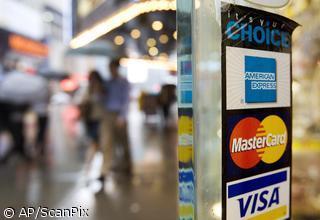CeBIT 2001, which will take place in Hannover from March 22 - 28, documents more than anything else the rapid pace of development in e-commerce.
Published:
22 March 2001 y., Thursday
CeBIT 2001, which will take place in Hannover from March 22 - 28, documents more than anything else the rapid pace of development in e-commerce. This applies both to the electronic processing of business-to-business transactions and to the development of online communications between companies and consumers. As a universally accessible platform the Internet has made it possible for suppliers and purchasers of goods and services to make contact and transact business in "electronic marketplaces." According to analysts at the Gartner Group in London, the market volume of e-commerce in Europe alone is set to grow from 35 billion dollars today to over one trillion dollars by the year 2004.
Many applications for Internet access on the move are now being developed on the basis of WAP technology (wireless application protocol). Thousands of software houses large and small now offer mobile applications for every area of life. Mobile phone users now have access to the same range of services - from banking transactions to hotel bookings - as customers who access the Internet from a PC in their home or office. According to industry observers, one of the biggest growth markets in the future will be games, which mobile phone users will be able to play by accessing the Internet on the move through a new generation of mobile networks, such as GPRS (general packet radio service) and the new UMTS (universal mobile telecommunications system).
For many consumers the Internet is already an important decision-making tool when shopping for new products. The mobile phone has become a mass-market consumer item. By 2005, according to a survey by Ericsson, the number of mobile phone users worldwide will have risen to 1300 million. 1000 million of these will also have access to mobile Internet services. At present the take-up rate for WAP phones, which offer Internet access based on the "wireless application protocol," is relatively slow, but by 2005 WAP phones are likely to be the norm. Compared with PC-based applications, where color and animation are the dominant features of the display, the possibilities for displaying information on small portable devices are still very limited. But as new broad-band infrastructures for mobile communications become available, we will see the development of applications that cater for the habits and expectations of PC users on smaller displays and allow information to be displayed in color. Prototypes of UMTS phones with these functions will be among the innovations to be unveiled at CeBIT 2001.
Šaltinis:
cebitusa.com
Copying, publishing, announcing any information from the News.lt portal without written permission of News.lt editorial office is prohibited.
The most popular articles
Software company announced new structure_ of it_s business.
more »
 The iPhone's new “ATM Hunter” is a a free iPhone application built by MasterCard that allows users to quickly find the ATMs that are closest to them.
more »
The iPhone's new “ATM Hunter” is a a free iPhone application built by MasterCard that allows users to quickly find the ATMs that are closest to them.
more »
 In security breach cases last year, such as Hannaford Bros. supermarket and the card processing firm Heartland Payment Systems, cybercriminals gained access to millions of consumers' credit card details.
more »
In security breach cases last year, such as Hannaford Bros. supermarket and the card processing firm Heartland Payment Systems, cybercriminals gained access to millions of consumers' credit card details.
more »
 Ingenico, a provider of payment solutions, says contactless technology will split the retail market this year, improving sales figures for early adopters and costing those who shun the additional investment in this burgeoning technology.
more »
Ingenico, a provider of payment solutions, says contactless technology will split the retail market this year, improving sales figures for early adopters and costing those who shun the additional investment in this burgeoning technology.
more »
 Widevine Technologies today announced that the US Patent and Trademark Office has reconfirmed the validity of many claims of Widevine's U.S.
more »
Widevine Technologies today announced that the US Patent and Trademark Office has reconfirmed the validity of many claims of Widevine's U.S.
more »
 Nokia Corp., the world's largest maker of cell phones, is making a large investment in California-based Obopay Inc., a startup that's pushing person-to-person mobile-payments technology.
more »
Nokia Corp., the world's largest maker of cell phones, is making a large investment in California-based Obopay Inc., a startup that's pushing person-to-person mobile-payments technology.
more »
 The increasing amount of overlap and duplication of data, tasks and processes in their anti-fraud and anti-money laundering divisions is driving banks to seek synergies between compliance, risk management and security, according to a new report from Datamonitor.
more »
The increasing amount of overlap and duplication of data, tasks and processes in their anti-fraud and anti-money laundering divisions is driving banks to seek synergies between compliance, risk management and security, according to a new report from Datamonitor.
more »
 The total number of IPTV subscribers worldwide passed the 20mn mark at the end of 2008, according to new figures from Informa Telecoms & Media, taking into account both disclosed and estimated figures.
more »
The total number of IPTV subscribers worldwide passed the 20mn mark at the end of 2008, according to new figures from Informa Telecoms & Media, taking into account both disclosed and estimated figures.
more »
 The IPTV World Forum opened its doors this morning on a bright London day, and the mood was equally optimistic indoors, with the conference rooms packed for keynote presentations from Christopher Schläffer of Deutsche Telekom, Christophe Forax from the European Commission and the BBC's Richard Halton, charged with making Project Canvas a reality.
more »
The IPTV World Forum opened its doors this morning on a bright London day, and the mood was equally optimistic indoors, with the conference rooms packed for keynote presentations from Christopher Schläffer of Deutsche Telekom, Christophe Forax from the European Commission and the BBC's Richard Halton, charged with making Project Canvas a reality.
more »
 A new Gartner Inc. report suggests that financial fraud could drive consumers away from banks and into the arms of electronic payment systems, such as PayPal, that they perceive to be more secure.
more »
A new Gartner Inc. report suggests that financial fraud could drive consumers away from banks and into the arms of electronic payment systems, such as PayPal, that they perceive to be more secure.
more »
 In the last year this more than doubles the number of cards and devices in circulation around the world.
more »
In the last year this more than doubles the number of cards and devices in circulation around the world.
more »